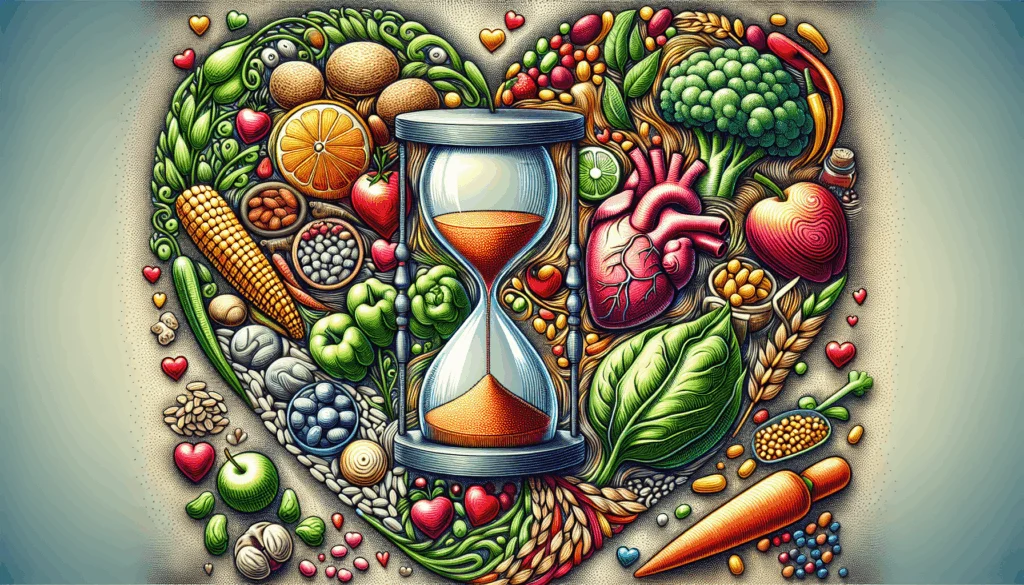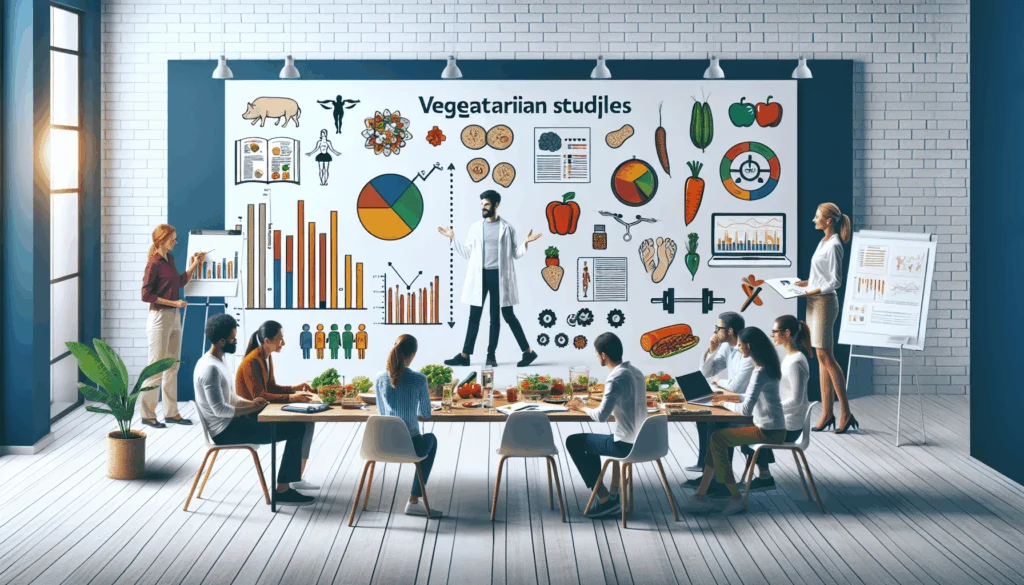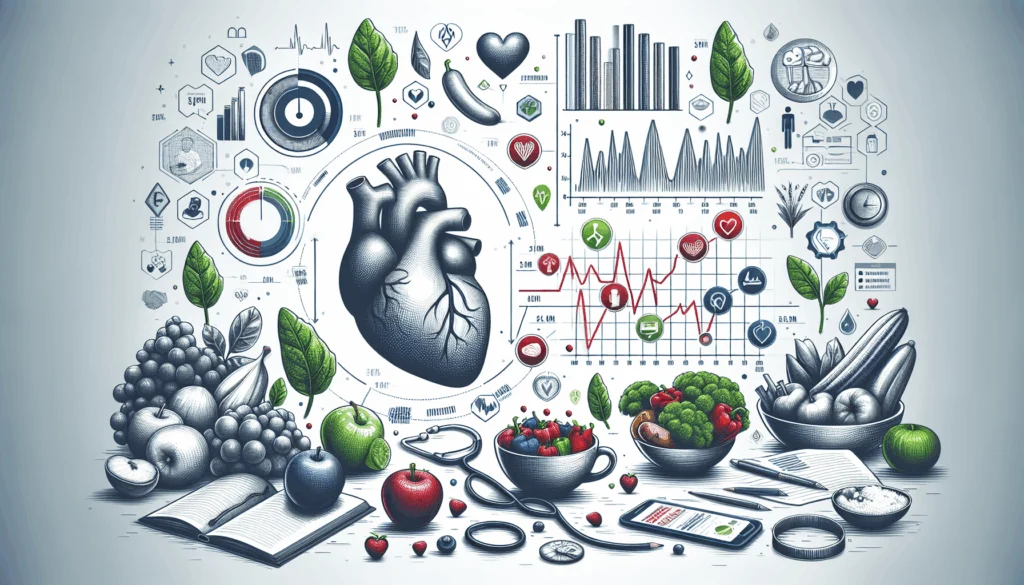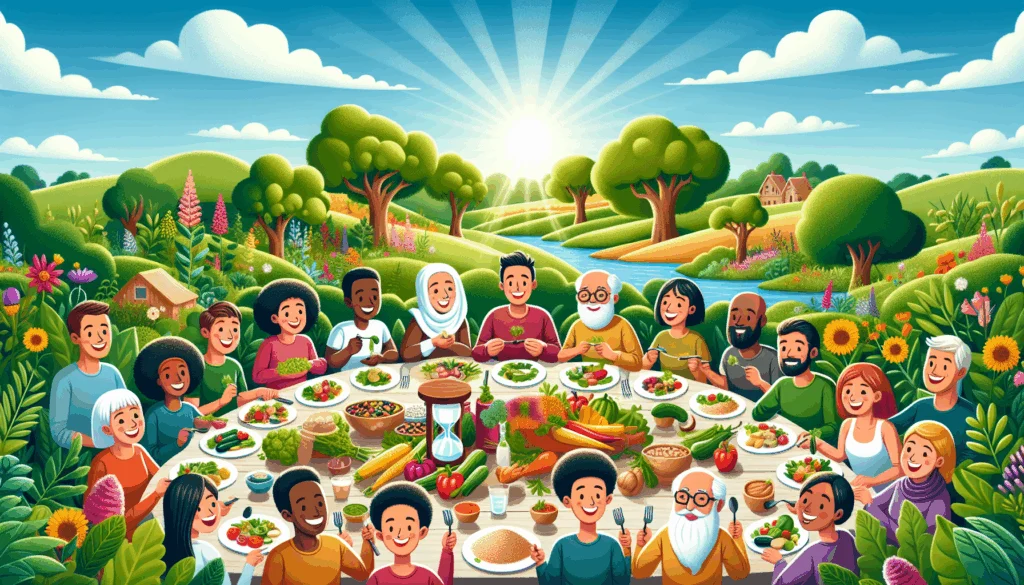La alimentación juega un papel crucial en nuestra salud y longevidad, lo que ha llevado a muchos a preguntarse si existen beneficios específicos al seguir una dieta vegetariana. Investigaciones recientes han comenzado a explorar la relación entre el vegetarianismo y la esperanza de vida, generando un creciente interés en este tema.
En este contexto, surge la pregunta: ¿Viven más años los vegetarianos? Varios estudios sugieren que aquellos que optan por una dieta basada en plantas pueden experimentar menores riesgos de enfermedades crónicas, lo que podría contribuir a una mayor longevidad. Analizaremos las evidencias y consideraciones que rodean este fascinante asunto.
Beneficios de la dieta vegetariana en la longevidad
La dieta vegetariana se ha asociado con una serie de beneficios para la salud que pueden influir positivamente en la longevidad. Al reducir el consumo de productos animales, los vegetarianos tienden a tener una ingesta más alta de frutas, verduras, legumbres y granos enteros, lo cual contribuye a mejorar la salud cardiovascular. Esto se traduce en una menor incidencia de enfermedades como la hipertensión y las afecciones del corazón, factores que son cruciales para una vida más larga.
Además, los vegetarianos suelen disfrutar de un menor riesgo de obesidad, ya que su dieta tiende a ser más baja en calorías y grasas saturadas. Esta relación se puede observar en los siguientes puntos:
- Menor índice de masa corporal (IMC)
- Reducción de la inflamación
- Mejor control del azúcar en sangre
Otro aspecto a considerar es que los vegetarianos tienden a tener una mayor ingesta de antioxidantes y fibra, que son esenciales para combatir el estrés oxidativo y mantener el sistema digestivo saludable. Estos nutrientes no solo ayudan a prevenir enfermedades, sino que también promueven un envejecimiento más saludable. La fibra, en particular, juega un papel clave en la salud intestinal, lo que se ha relacionado con una mejor longevidad.
Por último, estudios han demostrado que una dieta vegetariana puede estar vinculada a un mejor bienestar mental y emocional. Al incluir una variedad de alimentos vegetales, se favorece la producción de neurotransmisores que regulan el estado de ánimo, lo cual puede disminuir el riesgo de depresión y ansiedad, factores que también impactan en la esperanza de vida. Esto sugiere que la dieta no solo influye en la salud física, sino también en la salud mental, contribuyendo así a una vida más larga y satisfactoria.
Estudios científicos sobre la vida de los vegetarianos
Recientes estudios científicos han mostrado que los vegetarianos tienden a tener una mayor esperanza de vida en comparación con quienes consumen carne. Por ejemplo, una investigación publicada en el «American Journal of Clinical Nutrition» reveló que las personas que siguen una dieta vegetariana pueden reducir su riesgo de muerte prematura en un 25%. Este hallazgo sugiere que una dieta basada en plantas puede jugar un papel crucial en la longevidad.

Otro estudio destacado de la Universidad de Loma Linda en California encontró que los vegetarianos presentaban una menor incidencia de enfermedades cardiovasculares y diabetes tipo 2. Estas enfermedades son causas comunes de mortalidad, y al reducir su riesgo, los vegetarianos pueden aumentar significativamente su tiempo de vida. En este contexto, se identificaron varios factores clave:
- Consumo elevado de frutas y verduras.
- Menor consumo de grasas saturadas.
- Reducción en la ingesta de productos procesados.
Además, un metaanálisis realizado en 2020 evaluó los datos de múltiples estudios y concluyó que quienes adoptan una dieta vegetariana tienen un riesgo significativamente menor de desarrollar ciertos tipos de cáncer, como el cáncer de colon. Estos resultados refuerzan la idea de que una alimentación rica en alimentos vegetales y menos en alimentos de origen animal puede ser un factor protector importante para la salud a largo plazo.
Por último, es relevante mencionar que no solo la dieta influye en la longevidad, sino que los vegetarianos suelen adoptar otros hábitos saludables, como el ejercicio regular y una mayor conciencia sobre su bienestar. Estos estilos de vida, combinados con una alimentación equilibrada, pueden contribuir a una mejor calidad de vida y a un envejecimiento más saludable, lo que se traduce en una expectativa de vida prolongada.
¿Cómo influye el vegetarianismo en la salud cardiovascular?
El vegetarianismo tiene un impacto significativo en la salud cardiovascular. Al adoptar una dieta basada en plantas, se tiende a reducir el consumo de grasas saturadas y colesterol, lo que puede llevar a una mejora en los niveles de colesterol en sangre y una disminución de la presión arterial. Esto resulta en un menor riesgo de enfermedades cardíacas, lo que es fundamental para una vida más larga y saludable.
Entre los beneficios de una dieta vegetariana para la salud cardiovascular, se encuentran:
- Disminución del riesgo de hipertensión arterial.
- Mejora en la salud de los vasos sanguíneos.
- Menor incidencia de arritmias cardíacas.
- Aumento de la ingesta de nutrientes antiinflamatorios.
Además, un estudio reciente reveló que los vegetarianos presentan una mayor ingesta de compuestos beneficiosos para el corazón, como los ácidos grasos omega-3 provenientes de fuentes vegetales. Estos nutrientes ayudan a reducir la inflamación y mejoran la función endotelial, lo que contribuye a mantener las arterias en buen estado. En comparación con dietas ricas en carnes, los vegetarianos suelen tener un perfil lipídico más saludable.
Por otro lado, la fibra es un componente clave en la dieta vegetariana que favorece la salud cardiovascular. Se ha demostrado que una alta ingesta de fibra se asocia con niveles más bajos de colesterol LDL (el «colesterol malo») y una reducción en el riesgo de enfermedades del corazón. Incluir alimentos como legumbres, granos enteros y frutas en la dieta puede ser un enfoque efectivo para mejorar la salud cardiovascular y, por ende, la longevidad.

Comparativa entre dietas vegetarianas y omnívoras en términos de longevidad
La comparación entre las dietas vegetarianas y omnívoras ha sido objeto de numerosos estudios en términos de longevidad. Diversas investigaciones indican que las personas que siguen una dieta vegetariana pueden tener una esperanza de vida más alta en comparación con quienes consumen carne. Esto se debe, en parte, a la menor incidencia de enfermedades crónicas que suelen acompañar a una dieta alta en grasas saturadas y procesados, comunes en regímenes omnívoros.
Una de las razones por las cuales los vegetarianos pueden vivir más tiempo radica en su menor riesgo de enfermedades cardiovasculares. Al adoptar una alimentación rica en frutas, verduras y granos enteros, estos individuos experimentan una reducción en la presión arterial y los niveles de colesterol. Además, un menor consumo de carnes rojas y procesadas puede prevenir afecciones que acortan la vida. Algunos de los beneficios asociados a una dieta vegetariana son:
- Menor incidencia de hipertensión.
- Reducción de arteriosclerosis.
- Mejor control del peso corporal.
Los vegetarianos también tienden a tener un mayor consumo de nutrientes esenciales, como antioxidantes y fibra, que son fundamentales para mantener una buena salud a lo largo del tiempo. La fibra, específicamente, no solo mejora la salud digestiva, sino que también se ha relacionado con una menor mortalidad por enfermedades del corazón y algunos tipos de cáncer. Esto sugiere que los alimentos de origen vegetal pueden ser protectores en la búsqueda de una vida más larga y saludable.
Finalmente, es relevante mencionar que el estilo de vida que acompaña a la dieta vegetariana suele ser más saludable en general. Muchos vegetarianos también practican ejercicio regularmente y mantienen un enfoque consciente hacia su bienestar. Este conjunto de hábitos saludables, junto con una alimentación equilibrada, refuerza la idea de que la dieta vegetariana puede ser un factor clave para una mayor longevidad, al contribuir a una vida más activa y satisfactoria.
Mitos y realidades sobre la vida de los vegetarianos
Uno de los mitos más comunes sobre los vegetarianos es que carecen de suficiente proteína en su dieta. Sin embargo, la realidad es que existen numerosas fuentes vegetales de proteína como legumbres, frutos secos, semillas y productos derivados de la soja. De hecho, muchos vegetarianos obtienen la cantidad necesaria de este macronutriente, lo que demuestra que es posible mantener una salud óptima sin consumir carne. Esto refuerza la idea de que una dieta basada en plantas puede ser equilibrada y nutritiva.
Otro mito popular es que los vegetarianos son más propensos a desarrollar deficiencias nutricionales. Sin embargo, los estudios indican que los vegetarianos pueden tener niveles más altos de ciertos nutrientes, como fibra, vitaminas y antioxidantes, que benefician la salud en general. Es importante mencionar que, aunque ciertos nutrientes como la vitamina B12 y el hierro pueden ser más difíciles de obtener, un adecuado conocimiento sobre la alimentación vegetal permite cubrir estas necesidades a través de alimentos enriquecidos o suplementos, si es necesario.

En cuanto a la longevidad, se suele pensar que los vegetarianos no disfrutan de una vida social activa debido a restricciones dietéticas. Sin embargo, la realidad muestra que muchos vegetarianos encuentran formas creativas de compartir comidas con amigos y familiares, promoviendo un entorno social positivo. Además, la creciente popularidad de las opciones vegetarianas en restaurantes y eventos ha facilitado que estos individuos puedan disfrutar de una vida social plena sin comprometer sus principios alimentarios.
Finalmente, es crucial entender que los hábitos de vida de los vegetarianos, como el ejercicio regular y la conciencia sobre la salud, también juegan un papel significativo en su longevidad. Muchos vegetarianos adoptan un estilo de vida saludable que va más allá de su dieta, lo que refuerza la idea de que la combinación de una alimentación consciente y un estilo de vida activo puede llevar a una vida más larga y satisfactoria.
Factores que contribuyen a una vida más larga en personas vegetarianas
Los vegetarianos tienden a disfrutar de un menor riesgo de enfermedades crónicas, lo que es fundamental para una vida prolongada. Esto se debe a que su dieta se caracteriza por un alto consumo de alimentos ricos en nutrientes, como frutas y verduras, que están asociados con la reducción de enfermedades como la diabetes tipo 2 y ciertos tipos de cáncer. Estos factores son esenciales para mantener una buena salud a lo largo de los años y evitar complicaciones que pueden acortar la vida.
Además, la práctica de una alimentación variada y equilibrada permite a los vegetarianos obtener una amplia gama de antioxidantes, vitaminas y minerales que favorecen la salud celular. Entre los nutrientes clave se encuentran:
- Vitamina C, que ayuda en la reparación de tejidos.
- Vitamina E, un potente antioxidante que protege las células.
- Fitoquímicos, que pueden reducir la inflamación y el riesgo de enfermedades.
Otro factor importante es el estilo de vida saludable que suelen adoptar los vegetarianos. Este grupo generalmente combina su dieta con ejercicio regular y prácticas que promueven el bienestar mental, lo que contribuye a una vida más activa. La combinación de una dieta rica en vegetales con hábitos saludables puede ser un determinante clave en la longevidad, ayudando a prevenir el deterioro físico y mental asociado con la edad.
Finalmente, es relevante mencionar que la consciencia sobre la alimentación y la salud también se traduce en mejores decisiones en otros aspectos de la vida. Los vegetarianos suelen estar más informados sobre su dieta y sus beneficios, lo que les motiva a mantenerse activos y a cuidar su salud en general. Este enfoque integral no solo potencia su calidad de vida, sino que también puede contribuir a una mayor esperanza de vida.


http://www.ncbi.nlm.nih.gov/pubmed/19562864
https://unilife.curtin.edu.au/local/docs/MFS_Resources_Veg_ADA_PP_VegetarianDiets.pdf
“It is the position of the American Dietetic Association that appropriately planned vegetarian diets, including total vegetarian or vegan diets, are healthful, nutritionally adequate, and may provide health benefits in the prevention and treatment of certain diseases. Well-planned vegetarian diets are appropriate for individuals during all stages of the life cycle, including pregnancy, lactation, infancy, childhood, and adolescence, and for athletes”
NHS
http://www.nhs.uk/Livewell/Vegetarianhealth/Pages/Vegetarianhealthqanda.aspx
“As long as they get all the nutrients they need, children can be brought up healthily on a vegetarian or vegan diet.
A varied and balanced vegetarian or vegan diet can provide enough nutrients for you and your baby during pregnancy.
A vegetarian diet can be very healthy
With good planning and an understanding of what makes up a healthy balanced vegetarian and vegan diet, you can get all the nutrients your body needs to be healthy without the need for supplements.
You don’t need a special diet for exercising if you’re a vegetarian or vegan. The advice for vegetarians who exercise is the same as the advice for non-vegetarians who exercise regularly.
Most vegetarians have enough protein in their diet for the body to grow and repair itself.”
http://www.nhs.uk/news/2011/04April/Pages/vegetarian-diets-prevent-heart-problems.aspx
“Vegetarians ‘have lower heart risk’
“Veggie diet cuts heart attack risk by a third,” The results come from a small study that looked at how different dietary patterns related to the prevalence of metabolic syndrome. Metabolic syndrome is a cluster of disorders, including raised blood pressure, cholesterol and blood sugar, which increase the risk of cardiovascular disease and diabetes.”
http://www.ncbi.nlm.nih.gov/pubmed/?term=Dietary+pattern+analysis%3A+a+comparison+between+matched+vegetarian+and+omnivorous+subjects
Dietary pattern analysis: A comparison between matched vegetarian and omnivorous subjects.
“Our results indicate a more nutrient dense pattern, closer to the current dietary recommendations for the vegetarians compared to the omnivorous subjects. Both indexing systems were able to discriminate between the vegetarians and the non-vegetarians with higher scores for the vegetarian subjects”
http://www.ncbi.nlm.nih.gov/pubmed/24899080
Nutritional profile of Indian vegetarian diets–the Indian Migration Study (IMS).
“Overall, Indian vegetarian diets were found to be adequate to sustain nutritional demands according to recommended dietary allowances with less fat”
http://www.ncbi.nlm.nih.gov/pubmed/24910231
Prevention and management of type 2 diabetes: dietary components and nutritional strategies.
Lancet.
With an emphasis on overall diet quality, several dietary patterns such as Mediterranean, low glycaemic index, moderately low carbohydrate, and vegetarian diets can be tailored to personal and cultural food preferences and appropriate calorie needs for weight control and diabetes prevention and management.
http://www.ncbi.nlm.nih.gov/pubmed/?term=Comparison+of+Nutritional+Quality+of+the+Vegan%2C+Vegetarian%2C+Semi-Vegetarian%2C+Pesco-Vegetarian+and+Omnivorous+Diet
Comparison of nutritional quality of the vegan, vegetarian, semi-vegetarian, pesco-vegetarian and omnivorousdiet.
“The vegan diet received the highest index values and the omnivorous the lowest for HEI-2010 and MDS.
The score for the more prudent diets (vegetarians, semi-vegetarians and pesco-vegetarians) differed as a function of the used indexing system but they were mostly better in terms of nutrient quality than the omnivores.”
http://www.ncbi.nlm.nih.gov/pubmed/17175567
IQ in childhood and vegetarianism in adulthood: 1970 British cohort study
“Higher scores for IQ in childhood are associated with an increased likelihood of being a vegetarian as an adult.”
http://www.ncbi.nlm.nih.gov/pubmed/21771850
Diet and risk of diverticular disease in Oxford cohort of European Prospective Investigation into Cancer and Nutrition (EPIC): prospective study of British vegetarians and non-vegetarians.
“Consuming a vegetarian diet and a high intake of dietary fibre were both associated with a lower risk of admission to hospital or death from diverticular disease.”
http://care.diabetesjournals.org/content/early/2011/03/13/dc10-1221.abstract?sid=a28ee081-f677-46e7-9dd6-49ed5a9e7a57
Vegetarian Dietary Patterns Are Associated With a Lower Risk of Metabolic Syndrome
The Adventist Health Study 2
“Vegetarian Dietary Patterns Are Associated With a Lower Risk of Metabolic Syndrome
The Adventist Health Study
A vegetarian dietary pattern is associated with a more favorable profile of MRFs and a lower risk of MetS. The relationship persists after adjusting for lifestyle and demographic factors.”
http://www.ncbi.nlm.nih.gov/pubmed/23836264
Vegetarian dietary patterns and mortality in Adventist Health Study 2
“Vegetarian diets are associated with lower all-cause mortality and with some reductions in cause-specific mortality. Results appeared to be more robust in males.”
http://www.ncbi.nlm.nih.gov/pubmed/24566947
Vegetarian diets and blood pressure: a meta-analysis
“Consumption of vegetarian diets is associated with lower BP. Such diets could be a useful nonpharmacologic means for reducing BP.”
http://www.ncbi.nlm.nih.gov/pubmed/?term=Vegetarian+nutrition%3A+past%2C+present%2C+future
Vegetarian nutrition: past, present, future
“The former prejudices that vegetarianism leads to malnutrition were replaced by scientific evidence showing that vegetarian nutrition reduces the risk of most contemporary diseases.”
http://www.ncbi.nlm.nih.gov/pubmed/25192735
Type of vegetarian diet, obesity and diabetes in adult Indian population
“In this large, nationally representative sample of Indian adults, lacto-, lacto-ovo and semi-vegetarian diets were associated with a lower likelihood of diabetes. These findings may assist in the development of interventions to address the growing burden of overweight/obesity and diabetes in Indian population.”
http://www.ncbi.nlm.nih.gov/pubmed/16399477
Vegetarian eating for children and adolescents
“Well-planned vegetarian diets can satisfy the nutritional needs and promote normal growth of infants and children. Research has highlighted nutritional advantages to vegetarian diets and has indicated that this style of eating can lead to lifelong healthy eating habits when adopted at a young age.”
http://www.ncbi.nlm.nih.gov/pubmed/22333737
Restriction of meat, fish, and poultry in omnivores improves mood: a pilot randomized controlled trial.
“Restricting meat, fish, and poultry improved some domains of short-term mood state in modern omnivores. To our knowledge, this is the first trial to examine the impact of restricting meat, fish, and poultry on mood state in omnivores.”
http://www.ncbi.nlm.nih.gov/pubmed/23364007
Risk of hospitalization or death from ischemic heart disease among British vegetarians and nonvegetarians:results from the EPIC-Oxford cohort study.
“Consuming a vegetarian diet was associated with lower IHD risk, a finding that is probably mediated by differences in non-HDL cholesterol, and systolic blood pressure.”
http://www.ncbi.nlm.nih.gov/pubmed/?term=Cancer+in+British+vegetarians%3A+updated+analyses+of+4998+incident+cancers+in+a+cohort+of+32%2C491+meat+eaters%2C+8612+fish+eaters%2C+18%2C298+vegetarians%2C+and+2246
Cancer in British vegetarians: updated analyses of 4998 incident cancers in a cohort of 32,491 meat eaters, 8612fish eaters, 18,298 vegetarians, and 2246 vegans.
“In this British population, the risk of some cancers is lower in fish eaters and vegetarians than in meat eaters.”
http://www.ncbi.nlm.nih.gov/pubmed/?term=A+provegetarian+food+pattern+and+reduction+in+total+mortality+in+the+Prevenci%C3%B3n+con+Dieta+Mediterr%C3%A1nea+(PREDIMED)
A provegetarian food pattern and reduction in total mortality in the Prevención con Dieta Mediterránea (PREDIMED) study.
“Among omnivorous subjects at high cardiovascular risk, better conformity with an FP that emphasized plant-derived foods was associated with a reduced risk of all-cause mortality. This trial was registered at http://www.controlled-trials.com as ISRCTN35739639.”
http://www.ncbi.nlm.nih.gov/pubmed/?term=Gut+microbiota+and+cardiometabolic+outcomes%3A+influence+of+dietary+patterns+and+their+associated+components
Gut microbiota and cardiometabolic outcomes: influence of dietary patterns and their associated components.
“Studies in individuals who consume vegetarian and vegan diets have shown a reduced risk of cardiovascular events and incidence of diabetes.”
http://ajl.sagepub.com/content/6/3/250.abstract
Health Implications of a Vegetarian Diet
A Review
“There is now a significant amount of research that demonstrates the health benefits of vegetarian and plant-based diets, which have been associated with a reduced risk of obesity, diabetes, heart disease, and some types of cancer as well as increased longevity.”
http://www.ncbi.nlm.nih.gov/pubmed/21139125
Nutrition concerns and health effects of vegetarian diets
“Vegetarians typically have lower body mass index, serum total and low-density lipoprotein cholesterol levels, and blood pressure; reduced rates of death from ischemic heart disease; and decreased incidence of hypertension, stroke, type 2 diabetes, and certain cancers than do nonvegetarians.”
http://ajl.sagepub.com/content/5/2/135.abstract
Vegetarian Diets and Diabetes
“In observational studies, a vegetarian or vegan diet is associated with reduced risk of development of type 2 diabetes and lower risk of complications in those with existing diabetes.”
http://www.ncbi.nlm.nih.gov/pubmed/24964573
Health benefits and risk associated with adopting a vegetarian diet.
“It has been shown that properly applied vegetarian diet is the most effective way of reducing body mass (expressed as BMI), improving the plasma lipid profile and in decreasing the incidence of high arterial blood pressure, cardiovascular disease, stroke, metabolic syndrome and arteriosclerosis. In addition, improved insulin sensitivity together with lower rates of diabetes and cancer has been observed.”
http://www.ncbi.nlm.nih.gov/pubmed/20222825
Vegetarian diets and public health: biomarker and redox connections.
In this review, evidence for health benefits of vegetarian diets is presented from different perspectives: epidemiological, biomarker, evolutionary, and public health, as well as antioxidant. Sufficient scientific evidence exists for public health policy to promote a plant-rich diet for health promotion.
http://www.ncbi.nlm.nih.gov/pubmed/24716274#
Vegetarians reduce risk of heart disease by a third.
http://www.ncbi.nlm.nih.gov/pubmed/25084991
Key elements of plant-based diets associated with reduced risk of metabolic syndrome.
“Vegetarian and vegan diets have demonstrated effectiveness in improving body weight, glycemic control, and cardiovascular risk factors, as compared with conventional therapeutic approaches, and are potentially useful in the prevention of metabolic syndrome.”
http://www.ncbi.nlm.nih.gov/pubmed/21614817
[Nutritional status, lifestyle and cardiovascular risk in lacto-ovo vegetarians and omnivore].
“The results of the present study suggest that, although a lacto-ovovegetarian diet is considered healthier due to the lower consumption of total fat, saturated fatty acids and cholesterol, there are no significant differences in nutritional status or anthropometric indicators of cardiovascular risk when lifestyle and total calorie intake are similar.”
http://www.ncbi.nlm.nih.gov/pubmed/17397638
[Vegetarian diets; effect on health].
Some studies have shown beneficial results in obesity, cancer, Parkinson disease, hypertension, type 2 diabetes mellitus and urinary stones, compared with the omnivorous. The possible theoretical benefits in some diseases has been seen in the medical practice (diabetes mellitus, obesity, cardiovascular risk). However more studies are needed in the case of Parkinson’s disease and rheumatoid arthritis.
Physicians Committee for responsible medicine
http://www.pcrm.org/search/?cid=262
http://www.pcrm.org/health/diets/vegdiets/la-comida-vegetariana-poderosa-para-la-salud
A vegetarian diet, based on nutritious whole foods, is a healthful choice for any pregnant woman
La dieta vegetariana previene el cáncer. Muchos estudios epidemiológos y clínicos muestran que los vegetarianos tienen un riesgo cincuenta porciento menor de morir de cáncer que los no-vegetarianos.
Se ha demostrado que los ovo-lacto-vegetarianos son más saludables que los que comen carne, y los vegans lo son más que los ovo-lacto-vegetarianos.
La dieta vegetariana previene también las enfermedades cardíacas. La carne es la fuente principal de grasa saturada, y casi la única fuente principal de grasa saturada, y casi la unica fuente de colesterol en la dieta. Los vegetarianos evitan estos productos de alto riesgo.
http://nutritionfacts.org/video/vegetarians-versus-healthy-omnivores/
Vegetarians Versus Healthy Omnivores.
¡Pues claro que viven más años los vegetarianos! ¿Quién necesita carne cuando tienes aguacates? 🥑
Claro, porque la clave de la longevidad es un solo alimento. Deja de creerte todo lo que lees en internet y abre tu mente. La alimentación equilibrada y variada es lo que realmente importa. No hay una fórmula mágica. 🙄
¡Claro que viven más años los vegetarianos! ¡Si no comen carne, no se pudren por dentro! 💪🥦🥕
Eso es un mito. Los vegetarianos también pueden tener problemas de salud si no llevan una dieta equilibrada. Además, la carne no es la única fuente de nutrientes. Todos debemos cuidar nuestra alimentación, independientemente de nuestras preferencias.
¡Vaya artículo interesante! Pero, ¿y si los vegetarianos viven más años porque simplemente son más conscientes de su salud? 🤔
¡Interesante punto! Es cierto que los vegetarianos suelen tener una mayor conciencia de su salud, pero también existen estudios que demuestran que una dieta basada en plantas puede tener beneficios para la longevidad. Sería interesante explorar más al respecto. 🌱
¡Vaya artículo interesante! Pero yo conozco a un vegetariano que fuma como una chimenea y aún así vive más años. ¿Coincidencia o superpoderes ocultos? 🤔
Vaya, eso es curioso. Aunque es interesante tu ejemplo, no podemos generalizar basándonos en un solo caso. La alimentación balanceada y el estilo de vida saludable suelen ser factores clave para una vida más larga. ¡Pero quién sabe, tal vez tu amigo tenga superpoderes secretos! 😄
¡Claro que sí viven más años los vegetarianos! Los animales envidian su estilo de vida. 🥕🐷🥦 #GoVeggie
¡Vaya teoría interesante! Nunca había considerado la envidia animal como factor de longevidad. Pero supongo que cada uno tiene su punto de vista. ¡Bueno, a disfrutar de nuestras zanahorias y brócolis mientras podemos! 🥕🥦 #OpinionesCuriosas
¡Claro que viven más años los vegetarianos! ¡Las plantitas les dan superpoderes! 🌱💪
¡Vamos, amigos! La pregunta del millón: ¿los vegetarianos realmente viven más años? 🌱🤔 #QuieroSaberLaVerdad
¡Sin duda! Está comprobado que los vegetarianos tienen menor riesgo de enfermedades cardiovasculares y ciertos tipos de cáncer. Además, suelen tener un índice de masa corporal más bajo. ¡Así que sí, los vegetarianos podrían disfrutar de algunos años extra! 🌱💪 #VerdadComprobada
¡Vaya artículo interesante! Yo creo que los vegetarianos viven más años, pero los dragones también. ¿No? 😜
¡Jajaja, me encanta tu sentido del humor! Pero no estoy seguro de que los dragones vivan más años, aunque sería genial. En cuanto a los vegetarianos, hay estudios que sugieren que su estilo de vida puede prolongar la vida. ¡Cada uno tiene su propia elección! 🌱🐉
¡Claro que viven más años los vegetarianos! ¿Quién necesita carne cuando tenemos aguacates y papas fritas? 🥑🍟 #TeamVeggie
¡Claro que sí! Los vegetarianos viven más años, porque las plantas son nuestros superpoderes secretos. 🌱💪